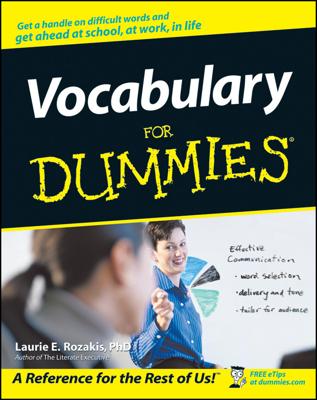How do you decide what to capitalize in the title of your book or research paper? Well, you have to be able to recognize verbs and nouns when you see them, but even so, the English rules about using capital letters in titles are not difficult to follow.
In this example, Lochness is hosting a party to celebrate the publication of his new book, I AM NOT A MONSTER. He has postponed the party three times because he can’t decide how to capitalize the title. What should he do? Actually, he should scrap the book, which consists of 540 pages of unbelievably boring detail about his humdrum life. Apart from that issue, here’s what Lochness should do:
Capitalize I and Monster. I is always uppercase and Monster is an important word. Also, I is the first word of the title, and the first word of the title is always capitalized.
Capitalize Am because it’s a verb, and verbs are at the heart of the title’s meaning.
Capitalize Not because it changes the meaning of the verb and thus has an important job to do in the sentence.
Lowercase the only word left — a. Never capitalize articles (a, an, and the) unless they’re the first words in the title.
Do you see the general principles? Here is a summary of the rules for all sorts of titles:
Capitalize the first word in the title.
Capitalize verbs and other important words.
Lowercase unimportant words, such as articles (a, an, the), conjunctions (words that connect, such as and, or, nor, and the like), and prepositions (of, with, by, and other words that express a relationship between two elements in the sentence).
The resulting book title is I Am Not a Monster.
Some grammarians capitalize prepositions with more than four letters. Others tell you to lowercase all prepositions, even the huge ones, such as concerning, according to, and so on. (Your best bet is to check with your immediate authority (editor, boss, teacher, and so on) to make sure that you write in the style to which he or she is accustomed.
When writing the title of a magazine or newspaper, should you capitalize the word the? Yes, if the is part of the official name, as in The New York Times. No, if the publication doesn’t include the in its official name, as in the Daily News.
Which words should you capitalize in these titles?
the importance of being lochness
romeo and lulu
slouching toward homework
Answers:
The Importance of Being Lochness (The is the first word of the title. Importance, Being, and Lochness are important words. Lowercase of because it’s not an important word.)
Romeo and Lulu (Romeo is the first word of the title and is also a name. Similarly, Lulu is a name. Lowercase and because it’s not an important word.)
Slouching Toward Homework (Slouching is the first word of the title. Homework is important. Toward can go either way. It’s a preposition — a relationship word — and thus may be lowercase, at least according to some grammarians. It’s also a long word, which makes it suitable for capitalization in the opinion of other grammarians.)

